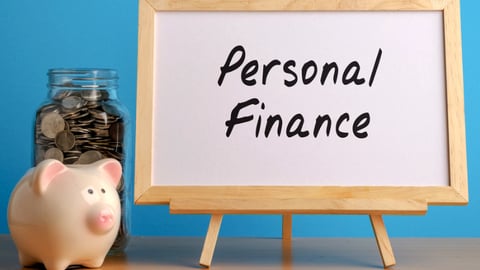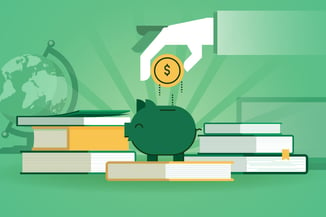Are you financially literate?
In today’s fast-paced world, understanding money is more important than ever—especially for our generation undergoing a period of rapid technological change, economic uncertainty, and shifting job markets. According to Yahoo Finance, Gen Z is the lowest level of financial knowledge; our goal is to change that. In this article we will explore what financial literacy is, why it is important, if you are financially literate, and how to become financially literate.
8/22/20243 min read


What Is Financial Literacy?
At its core, financial literacy means having the knowledge and skills to make informed financial decisions. This includes understanding:
Budgeting: How to plan and manage your income and expenses.
Saving and Investing: Knowing where and how to store your money, whether in a savings account or investments like stocks and bonds.
Credit and Debt: Understanding how credit works and how to manage loans and debt responsibly.
Taxes: Being aware of how taxes impact your earnings and how to file them correctly.
Insurance: Recognizing the importance of protecting your health, income, and assets through insurance.
Why Is Financial Literacy Important?
As our generation will soon be venturing into adulthood and taking over corporate American, it is critical that we take the steps to educate ourselves on basic finances.
Increased Financial Independence: As Gen Z starts earning money from part-time jobs, internships, or side hustles, managing that income is key to achieving financial freedom.
Student Loans and Debt: Many of us will need to navigate student loans or credit cards, making it crucial to understand how to borrow wisely and avoid overwhelming debt.
Planning for the Future: Financial literacy helps you build a strong foundation for long-term goals, such as buying a home, starting a business, or investing for retirement.
Avoiding Scams and Fraud: With more of your financial life online, being financially literate also means being able to identify and avoid scams and fraud targeted to our generation.
How to Become Financially Literate
Becoming financially literate isn’t as daunting as it sounds. Just by reading this blog you're taking the steps to become financially literate!
Here are other ways you can start:
Read and Learn: There are tons of online resources like blogs, podcasts, and YouTube channels dedicated to personal finance. Some of my favorite podcasts include The Money With Katie show and Morning Brew. The Plain Bagel on YouTube offers great digestible videos and various news channels(WSJ, CNBC, Vox) are great options as well.
Track Your Spending: Use apps like Mint or YNAB (You Need a Budget) to keep an eye on where your money is going. This helps you understand your spending habits and adjust them if needed.
Create a Budget: A simple budget can be your financial blueprint. Write down your income and your essential expenses, and decide how much you can save or invest. We will be launching a budget template soon, so be on the look out for that!
Learn About Investing: Apps like Robinhood and Acorns make it easy to start investing even with small amounts. You don’t need to be a Wall Street expert to grow your wealth, you just need to be 18 and eager.
Understand Credit: Learn how your credit score works and how to build and maintain good credit. Don't wait until you absolutely have to, to start building your credit score. You can get a head start by getting your parents or guardian to co-sign a credit card or become a authorized user on theirs. Understanding how credit works early on will help you avoid high-interest debt and create the habit of paying your bills on time
Quick Quiz: Test Your Financial Knowledge!
How financially savvy are you? Take this quiz and find out:
What is a credit score?
a) Your income
b) A score showing how trustworthy you are with borrowing money
c) The amount of money you have in savingsIf you want to start investing, what’s the first step you should take?
a) Invest all your savings at once
b) Learn the basics of investing and start small
c) Avoid investing—it’s too riskyWhat is compound interest?
a) Interest calculated on the initial deposit only
b) Interest calculated on both the initial deposit and the accumulated interest
c) A type of taxWhat percentage of your income should go into savings, according to the 50/30/20 rule?
a) 10%
b) 20%
c) 30%True or False: It’s always a good idea to have a credit card.
Answers:
b) A score showing how trustworthy you are with borrowing money
b) Learn the basics of investing and start small
b) Interest calculated on both the initial deposit and the accumulated interest
b) 20%
True (if managed responsibly, credit cards can help build your credit score)
Becoming financially literate isn’t just about preparing for the future—it’s about empowering yourself to take control of your money today. Start learning, and your future self will thank you!






Follow Us!
Join us to learn and grow financially together.
© 2024. All rights reserved.
